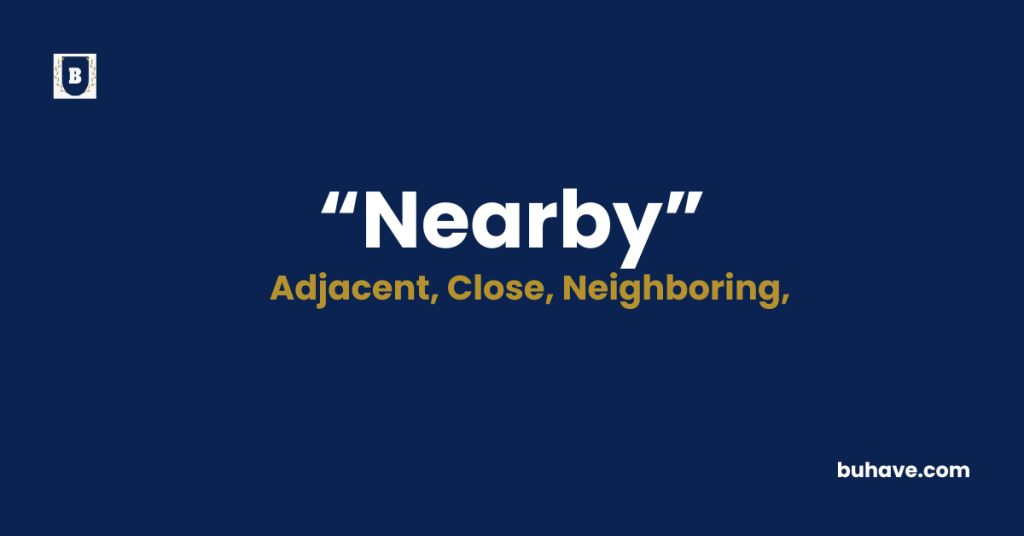The word ‘Nearby’ (Adjective) refers to something that is close in location or position. In this guide, you’ll learn the full definition, synonyms, antonyms, etymology, and real-life examples of how to use ‘Nearby’ correctly in sentences.
Nearby Explained in Depth
A complete and detailed guide to the word Nearby including meaning, definition, examples, etymology, synonyms, and antonyms.
Meanings of Nearby
‘Nearby’ means close at hand or not far away. It can describe physical proximity or spatial closeness, typically used to refer to places, objects, or people located within a short distance.
Definition
Nearby located close by; not far away; at or within a short distance.It can describe physical proximity or spatial closeness, typically used to refer to places, objects, or people located within a short distance.
Etymology
The word ‘nearby’ combines “near,” from Old English neah (meaning “nigh” or “close”), and “by,” from Old Norse bi, meaning “town” or “settlement.” The modern compound formed in the 17th century to indicate close proximity.
Example Sentences
- There’s a grocery store nearby.
- She lives in a nearby town.
- We decided to take a walk in the nearby park.
- The hospital is nearby in case of emergency.
- He parked his car in a nearby lot.
Nearby Synonyms
- Close
- Adjacent
- Near
- Neighboring
- Next door
- Handy
- Proximate
- Accessible
- Immediate
- In the vicinity
Nearby Antonyms
- Distant
- Far
- Remote
- Faraway
- Outlying
- Inaccessible
- Removed
- Afar
- Isolated
- Far-flung
FAQs about Nearby
Here are some frequently asked questions (FAQs) about the word “Nearby”
1. Is ‘nearby’ an adjective or adverb?
It can function as both. As an adjective: “a nearby school.” As an adverb: “The school is nearby.”
2. Can ‘nearby’ be used for time?
No, it’s typically used for physical location or proximity, not for time.
3. What is the difference between ‘nearby’ and ‘near’?
‘Near’ is more general, while ‘nearby’ specifically emphasizes short physical distance.

















